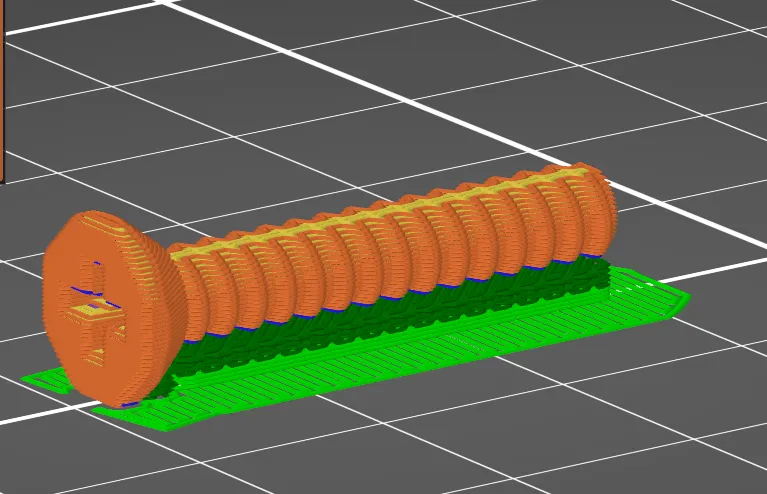If you wanna print it yourself, the model is here: https://www.printables.com/model/1348194-4n-threaded-flat-head-screws-and-nuts-10-32-equiva
Design to be a drop in replacement for 10-32 screws with a much, much higher pitch. These screws are extremely easy to print, is reliable enough that it can hold some weight.
If you wanna print this yourself, you need to make sure that the screw is sideways, so if it breaks it’s no on the layer lines.

Using them in my own prints which had metal screws and they are holding quiet well.
Torx or Robertson would probably be a better choice for head.
I mean, theorerically, but a phillips screw is much less complicated and easier to print bc less overhang
Robertson is a square. Rotate it 45 degrees and it has no overhangs at all.
And given the lack of strength in these screws, cam-out is likely a positive (which is what the Phillips what’s designed to do).
Never in my dang life have I seen a Philips actually cam out. Either the screw strips or the driver strips.
Usually both.
I’ve never seen a Phillips screw get stripped without first camming out a few times.
Who cares if the head strips even metal screws do that every time
These are the size of 10-32’s… if their head strips you are putting a ton of torque on it.
You underestimate my power.
I wonder if 3d printed driver tips would be better for matching the material strength and reduce stripping. Or maybe they wouldn’t have enough strength at all and would just twist and fall apart.
I was also wondering how well printing drywall anchors would work.
Actually a 3D printed driver might work brilliantly for this - the matching material hardness would distribute torque more evenly and prevent stripping, plus you could design a custom bit shape that’s optimzed specifically for printed fasteners.
Yeah, those were my original thoughts. I think it would take some experimentation to see what works.





